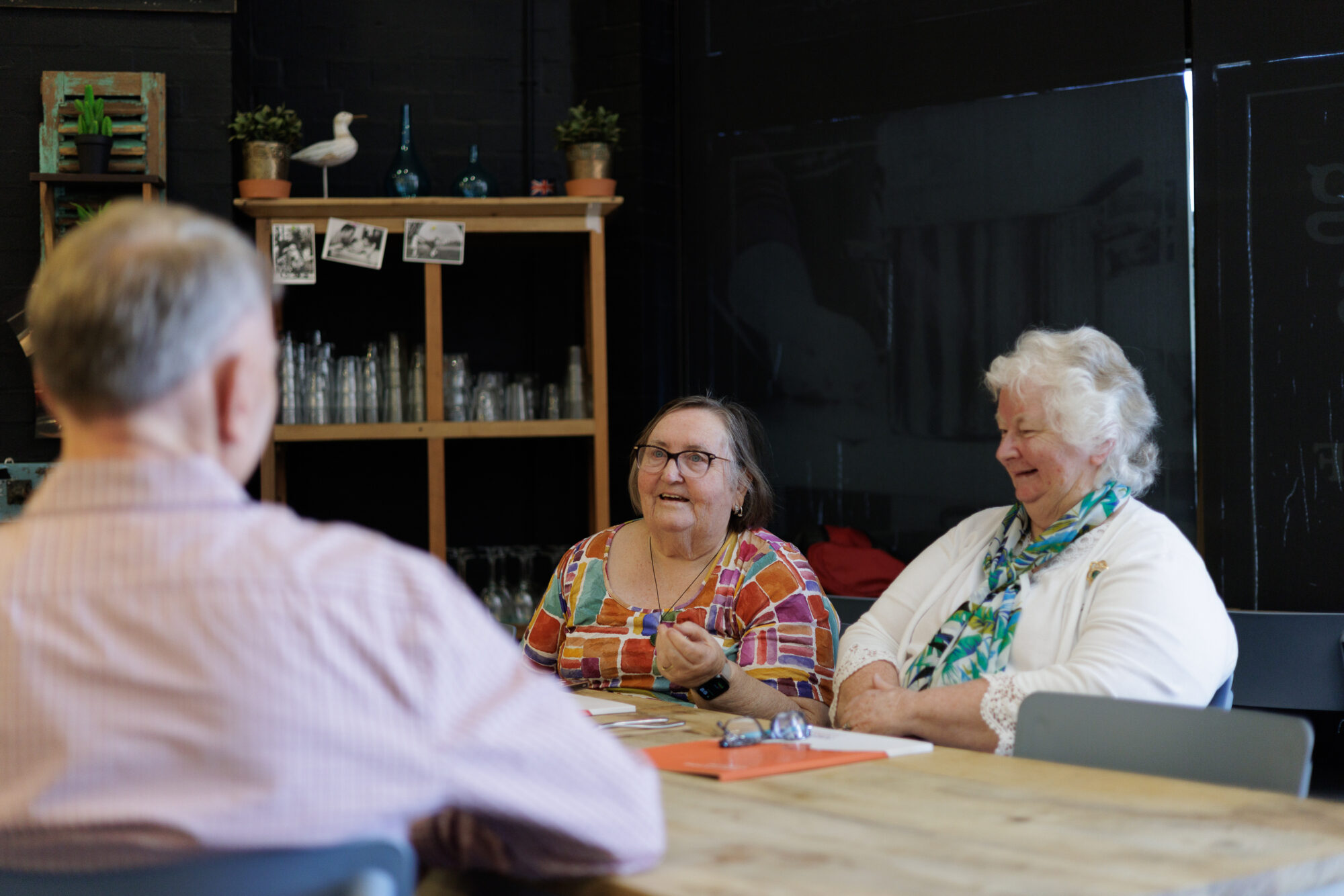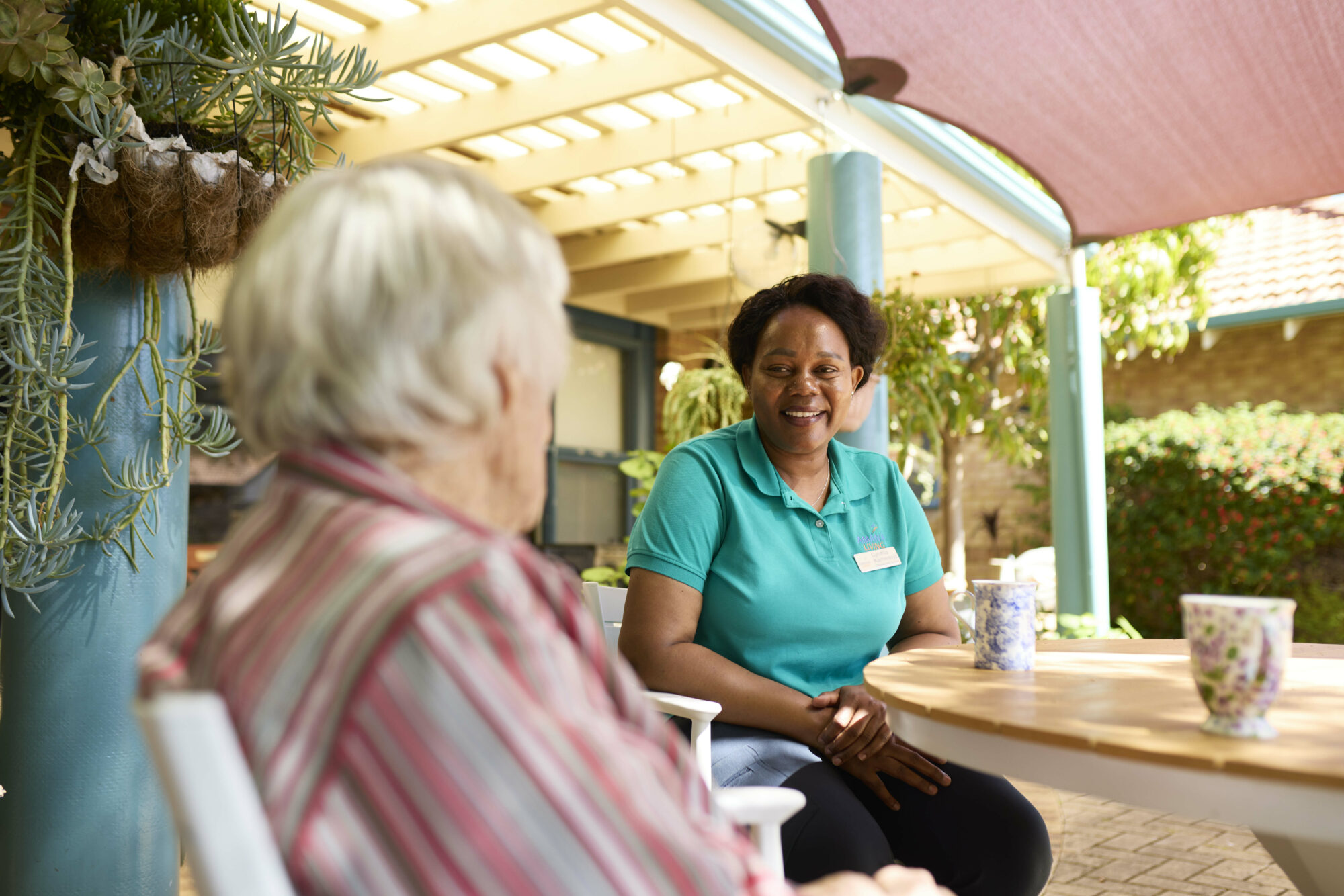Amana Living’s creation was inspired by the church’s compassion to help those in need, and the Christian respect for the sanctity of life. It was also driven by practical concerns; how could the Anglican church help older people to remain in the community they love?
Initially this began by providing self-catered accommodation and nursing homes, but it has now expanded to providing care and support services to older people at home. Rose-Marie McNamara set up the home care team at the organisation, 30 years ago.
“We started community services in 1992,” Rose-Marie explained. “We had one coordinator and about 20 clients who lived in the northern suburbs of Perth. We employed part-time staff and they provided personal care, prompted clients to take their medications, and cooked meals. There were no uniforms and no branded cars.
“As we grew, we began helping with household chores and gardening, and occasionally I’d ask some of the nurses from our hostels to help with clinical care, like daily injections. There was a lot of flexibility to do what the client wanted, and the services were very much based on the client’s needs.”
In 2003, Michelle Bilson took on the role of General Manager of Community Services. Michelle had previous experience with Amana Living, working at James Brown day club, now Club Catherine King, while she was at university.
Michelle said: “The team was still relatively small when I took over as general manager. We had around $5 million of funding and employed 30 to 40 staff, but we grew this to around $16 millions of funding by 2011.
“We were providing services to clients who had Home and Community Care (HACC) funding, as well as Extended Aged Care at Home (EACH) and EACH-D packages for people living with dementia. There was also the Seniors Holiday Support Program and three dementia-specific day centres.”
Click the following link to learn more about our home care package options in Perth.
In 2007, Michelle employed clinical nurse consultant Sue Pettigrew, who remains with Amana Living and now leads the organisation’s clinical and care team. Sue has developed Amana Living’s capability to meet people’s complex healthcare needs at home. She has grown the clinical team from just three nurses to 30 staff including nurses, physiotherapists, occupational therapists, and social workers.
While much has changed over 30 years, the client remains at the heart of the service. Sue said: “The clients are absolutely at the centre of everything we do. They are the decision-maker, and we work with them to make sure the care we provide meets their needs.”
Technology has played a role in personalising services and has had a big impact.
“Our staff now carry mobile phones which gives them access to rosters, client notes, and wound care. They have the information they need at their fingertips instead of relying on paper files and verbal handovers,” Sue added.
“Technology has also enabled us to provide telehealth services. Our nurses consult with clients living in a remote indigenous township, around a seven-hour drive north-east of Kalgoorlie. And just the other day, I had a video call with a client in Yanchep as her support worker was worried about her legs, and we had to get her to hospital.”
Now, Amana Living’s home care service is headed up by Deb Whitelock who oversees a team of more than 280 permanent staff. The team provides services to more than 3,200 clients spanning all regions of Perth and Peel, as well as Kalgoorlie. In addition to providing support at home and clinical care, Amana Living’s home care team runs a social outings program called Kites, operates six day clubs, and delivers short-term restorative care and transition care in the community.




